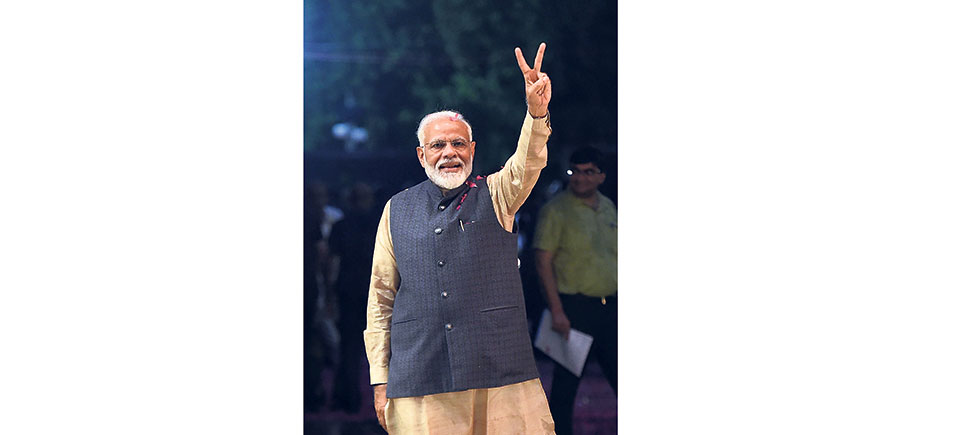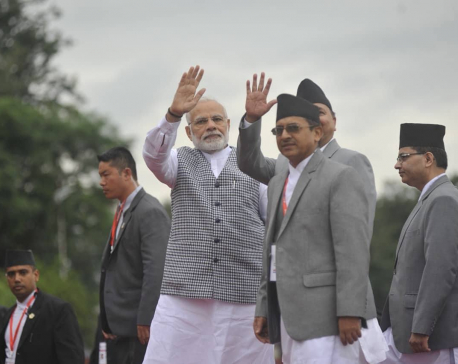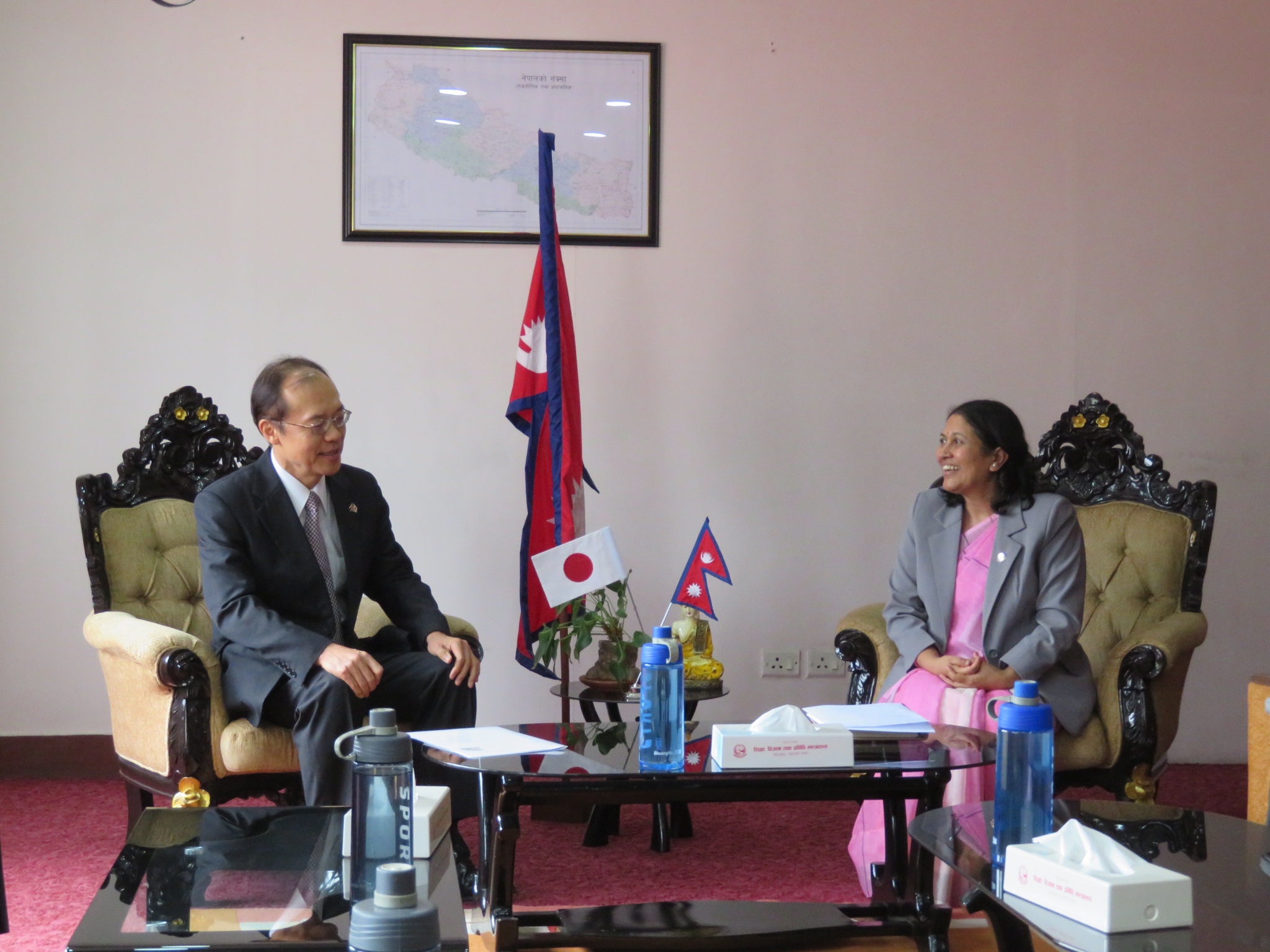
OR
‘Modi’s invite for BIMSTEC heads at swearing-in signals change in neighborhood policy’
Published On: May 29, 2019 09:01 AM NPT By: Kosh Raj Koirala | @KoshRKoirala

Experts call for ‘readjusting’ foreign policy in line with India’s changed foreign policy orientation
KATHMANDU, May 29: The decision of India to invite leaders from Bimstec member states and the chair of the Shanghai Cooperation Organization to the swearing in ceremony of Prime Minister Narendra Modi sends a message that India’s neighborhood first policy now extends beyond South Asia, foreign policy analysts in Kathmandu say.
As Prime Narendra Modi is set to assume office for the second term on Thursday with a clear indication that the orbit of New Delhi’s neighborhood first policy now extends beyond South Asia, they also underscore the need for Nepal to ‘readjust’ its own foreign policy towards India in line with the changed foreign policy orientation of the regional power.
Former foreign minister Ramesh Nath Pandey argued that India’s decision to invite Bimstec leaders and the SCO chair as opposed to SAARC leaders at Modi’s previous swearing-in shows that the foreign policy of India during his second term will be guided by the efforts made and experience gained by Prime Minister Modi during his first tenure as prime minister.
“India under Prime Minister Modi in the last five years has achieved global status. India appears to have expanded its neighborhood policy accordingly. It is in this context that it is appropriate for Nepal to readjust its foreign policy towards India in line with the changed reality,” said Pandey.
Prime Minister Modi has invited leaders from Bimstec member states, the Kyrgyz president in the capacity of SCO chair and the head of the government from India’s oceanic partner of Mauritius during the swearing-in ceremony. Prime Minister KP Oli is leaving for New Delhi on Thursday morning to attend the ceremony, according to the Ministry of Foreign Affairs.
However, other foreign policy experts argue that it is still too early to say that India’s neighborhood policy is set to witness any fundamental shift. “Of course, it is obvious that India is more interested in Bimstec than SAARC. But it is yet to be seen what shape India’s foreign policy towards its neighbors will take,” said former foreign secretary and ambassador Madan Bhattarai.
Experts argue that India seems to have given a message that it gives priority to the Bay of Bengal region and South East Asia in line with its Act East Policy with the invitation of Bimstec leaders to the swearing-in ceremony. The invitation to Kyrgyz President Sooronbay Jeenbekov, who is currently serving as SCO chair likewise manifests India’s growing interest in Central Asia.
Unlike at his previous swearing-in, India has chosen not to invite leaders from Pakistan, Maldives and Afghanistan. While the decision of New Delhi not to invite Pakistan has been widely described as a part of New Delhi’s policy to “isolate” it over the issue of terrorism, Prime Minister Modi is beginning his first bilateral visit abroad from Maldives during his second term apparently to highlight India’s foreign policy priority towards the island nation.
While speculations have begun in Kathmandu how India’s neighborhood first policy will evolve during the second term of Prime Minister Modi, there are also visible concerns that SAARC will now be rendered more defunct. As current chair and host of the SAARC Secretariat, Nepal stands in favor of hosting the 19th SAARC Summit at the earliest possible date to inject new life into this South Asian regional body.
As the fate of SAARC hangs in the balance with India repeatedly snubbing invitations by Islamabad to attend the Summit over the latter’s alleged support for terrorist elements, experts lament that Nepal as current chair of the regional body had done nothing to facilitate hosting the stalled 19th SAARC Summit. “Except for some lip service, Nepal did not hold any meetings to host the stalled SAARC summit to give a new lease of life to the regional body. It could have even undertaken quiet negotiation to convince member states to change the venue of the Summit,” said former foreign secretary Bhattarai.
You May Like This

BIMSTEC Charter in Force: Time to Fulfill Unmet Expectations
The Charter of the Bay of Bengal Initiative for Multi-Sectoral Technical and Economic Cooperation (BIMSTEC) officially came into force on... Read More...

Indian PM Modi arrives in Kathmandu for BIMSTEC (with photos)
KATHMANDU, Aug 30: Prime Minister of India Narendra Modi has arrived in Kathmandu to participate in the fourth summit of... Read More...

FM Gyawali, BIMSTEC Secy Gen discuss hosting BIMSTEC Summit
KATHMANDU, May 31: Minister for Foreign Affairs Pradeep Kumar Gyawali held discussions with Secretary General of the Bay of Bengal Initiative... Read More...











Just In
- Nepal at high risk of Chandipura virus
- Japanese envoy calls on Minister Bhattarai, discusses further enhancing exchange through education between Japan and Nepal
- Heavy rainfall likely in Bagmati and Sudurpaschim provinces
- Bangladesh protest leaders taken from hospital by police
- Challenges Confronting the New Coalition
- NRB introduces cautiously flexible measures to address ongoing slowdown in various economic sectors
- Forced Covid-19 cremations: is it too late for redemption?
- NRB to provide collateral-free loans to foreign employment seekers







Leave A Comment